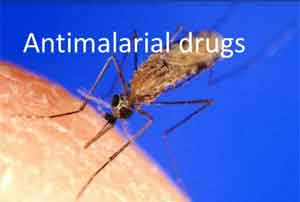- Home
- Editorial
- News
- Practice Guidelines
- Anesthesiology Guidelines
- Cancer Guidelines
- Cardiac Sciences Guidelines
- Critical Care Guidelines
- Dentistry Guidelines
- Dermatology Guidelines
- Diabetes and Endo Guidelines
- Diagnostics Guidelines
- ENT Guidelines
- Featured Practice Guidelines
- Gastroenterology Guidelines
- Geriatrics Guidelines
- Medicine Guidelines
- Nephrology Guidelines
- Neurosciences Guidelines
- Obs and Gynae Guidelines
- Ophthalmology Guidelines
- Orthopaedics Guidelines
- Paediatrics Guidelines
- Psychiatry Guidelines
- Pulmonology Guidelines
- Radiology Guidelines
- Surgery Guidelines
- Urology Guidelines
Use of antimalarial drug speeds up recovery of a 60-year-old cancer patient

Three years on, the patient continues to be disease-free -both from ovarian cancer and dermatomyositis. Follow-up has shown no signs of cancer, and the patient is reportedly symptom-free.
Previously published evidence in cancer medical science has shown that antimalarial drugs hydroxychloroquine and quinacrine may play a role in cancer treatment, as they appear to work together with cancer drugs, making treatments more effective.
"This is an interesting example of serendipity - an incidental finding of a cancer patient responding strongly to a non-cancer drug used for the treatment of a co-morbid condition," says Dr. Pan Pantziarka of The Anticancer Fund, Belgium, and one of the leaders of the Repurposing Drugs in Oncology (ReDO) Project. "It's important to publish such cases as they may provide early data for later preclinical and clinical investigation."
Dr. Muggia stresses that conclusions cannot be drawn from the example of one patient. "However, the depth of the response of an aggressive high-grade serous ovarian cancer to the initial platinum-taxane doublet, after months of dermatomyositis and treatment with anti-malarial drugs, should encourage further inquiries into the role of autophagy, its subsequent inhibition, and immunity in enhancing responses to [platinum-based] chemotherapy."
Dr. Pantziarka says, "There is already strong evidence that antimalarials such as hydroxychloroquine and chloroquine possess anticancer activity, as was summarised by the ReDO Project last year. If replicated, it would show yet again the therapeutic value still to be realized in so many of our existing non-cancer medicines."
Dr. Muggia adds, "Much remains to be learned about ovarian cancer biology and autophagy. We hope the current report catalyzes additional work in this area."
According to Dr. Muggis, the patient is now disease-free and healthy.
For further information click on the link: https://doi.org/10.3332/ecancer.2018.83

Disclaimer: This site is primarily intended for healthcare professionals. Any content/information on this website does not replace the advice of medical and/or health professionals and should not be construed as medical/diagnostic advice/endorsement or prescription. Use of this site is subject to our terms of use, privacy policy, advertisement policy. © 2020 Minerva Medical Treatment Pvt Ltd